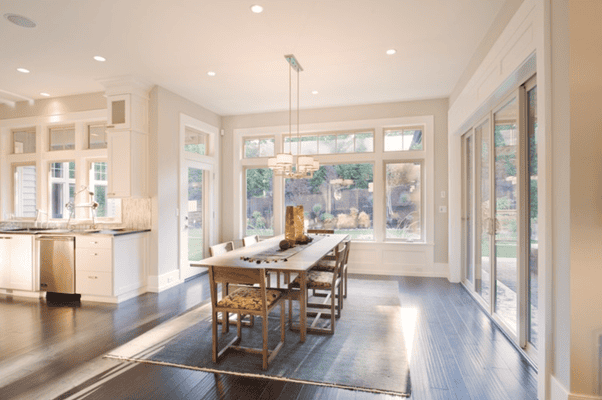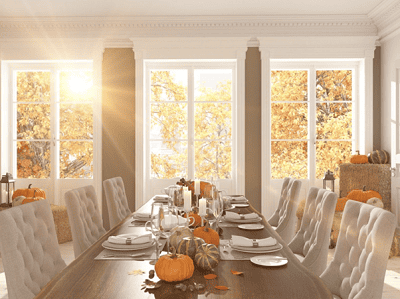
Energy-Efficient Windows: Types of Windows to Save on Energy Bills
Windows that can save energy are becoming increasingly important for homeowners looking to reduce their power bills and enhance their living spaces. These solutions are designed to minimize heat loss in winter and keep homes cooler in summer. In this blog post, we will explore the different types of energy-efficient apertures available, their benefits, and how they can contribute to a more sustainable living environment.
What Is Energy Efficiency in Windows?
Before diving into the types of energy-efficient windows, it is essential to understand what makes a window energy-saving. The efficiency of a window is typically measured by its U-factor, Solar Heat Gain Coefficient (SHGC), and Visible Transmittance (VT).
- U-factor: This measures the rate of heat transfer through the window. A lower U-factor indicates better insulating properties.
- Solar Heat Gain Coefficient (SHGC): This measures how much solar radiation passes through the window. A lower SHGC means less heat from sunlight enters the home.
- Visible Transmittance (VT): This measures how much light comes through the window. A higher VT is desirable for natural lighting without compromising energy efficiency.
Types of Energy-Efficient Windows
When considering energy-efficient apertures, it is essential to understand the various types available, each designed to improve energy performance in unique ways.
Double or Triple-Pane Windows
 Double-pane windows consist of two glass panes separated by a space filled with argon or krypton gas, which acts as an insulator. Triple-pane solutions add a third pane for even greater insulation. These solutions significantly reduce heat transfer, making them ideal for extreme climates. The additional layer of glass and gas creates a barrier that keeps indoor temperatures stable, reducing the workload on heating and cooling systems.
Double-pane windows consist of two glass panes separated by a space filled with argon or krypton gas, which acts as an insulator. Triple-pane solutions add a third pane for even greater insulation. These solutions significantly reduce heat transfer, making them ideal for extreme climates. The additional layer of glass and gas creates a barrier that keeps indoor temperatures stable, reducing the workload on heating and cooling systems.
Low-E Glass Windows
Low-emissivity (Low-E) glass has a special coating that reflects infrared light while allowing visible light to pass through. This feature helps keep homes warm in winter and cool in summer, enhancing overall energy efficiency. Low-E glass is particularly effective at reducing UV rays that can fade furniture and carpets. By minimizing heat gain during summer months and retaining warmth during winter, Low-E windows can lead to substantial energy savings throughout the year.
Vinyl-Framed Windows
Vinyl windows are popular due to their durability and low maintenance requirements. They offer excellent insulation properties and can be designed to meet specific energy efficiency standards. Vinyl frames also resist moisture and do not require painting, making them a practical choice for many homeowners. Additionally, vinyl options come in various styles and colors, allowing homeowners to customize their appearance while benefiting from energy efficiency.
For those considering an upgrade to energy-efficient windows, partnering with professionals like MaxHome is essential. Its expertise in window replacement ensures that homeowners receive quality products tailored to their needs. MaxHome specializes in providing comprehensive solutions for energy-efficient window installations, making the transition seamless and effective.
Benefits of Energy-Efficient Windows
Investing in energy-efficient windows offers numerous benefits beyond just lower energy bills:
- Enhanced comfort: These apertures help maintain a consistent indoor temperature by minimizing drafts and cold spots.
- Noise reduction: Double or triple-pane windows can significantly reduce outside noise, creating a quieter indoor environment.
- Increased home value: Energy-efficient upgrades can enhance property value, making homes more attractive to potential buyers.
- Environmental impact: By reducing energy consumption, homeowners contribute to lower greenhouse gas emissions, promoting sustainability.
How to Choose the Right Energy-Efficient Windows
Selecting the right type of energy-efficient window depends on various factors. Here are some tips for making an informed decision:
- Assess your climate: Different window types perform better in specific climates. For instance, triple-pane windows may be more beneficial in colder regions where heat retention is crucial.
- Consider your home’s design: The architectural style of your home may influence your choice of window materials and designs.
- Evaluate energy ratings: Look for ENERGY STAR labels or other certifications that indicate high efficiency.
- Consult professionals: Engaging with experts from window replacement companies can provide valuable insights into the best options for your home.
Installation Considerations
The installation process is just as important as selecting the right type of window. Proper installation ensures that your new windows perform at their best and provide optimal energy savings. Poorly installed solutions can lead to leaks and drafts, negating any benefits gained from choosing high-efficiency models.
Concluding Remarks
Energy-efficient windows are a smart investment for any homeowner looking to save on energy bills while enhancing comfort and sustainability. By understanding the different types available and their benefits, you can make informed decisions that will positively impact your home environment. Collaborating with dedicated remodeling companies can facilitate the process of selecting and installing these essential upgrades effectively. Investing in quality solutions today will lead to enduring savings tomorrow!













 Accessibility
Accessibility